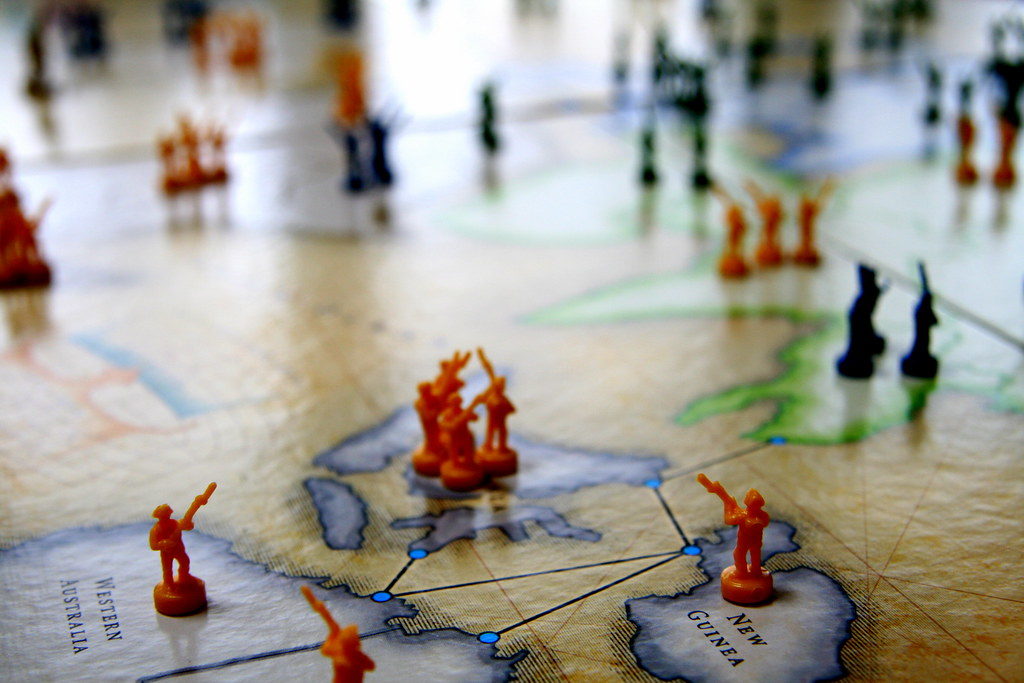Wargaming During a Pandemic
My latest at War on the Rocks.

War on the Rocks this morning published an essay written by my boss, Colonel Tom Gordon; my longtime colleague at the Atlantic Council and now Marine Corps University, Jorge Benitez, and yours truly about the challenges and opportunities presented by the sudden transition to online teaching. It’s titled “MAY MADNESS: COMPETITIVE WARGAMING IN A PANDEMIC.”
The lede:
What starts with the enemy sinking three of your amphibious assault ships, and ends with a toddler interrupting the outbrief to a three-star general? A successful wargame in the age of COVID-19.
The takeaway:
We were hoping to achieve at least a significant fraction of the in-person experience. In many ways, we got much more than that.
The distributed virtual medium actually increased participation from a host of different agencies and stakeholders, who otherwise would not have been able to support the event. The paucity of Navy officers, especially unrestricted line officers, has been a challenge for all of the staff and war colleges ─ even at Newport ─ in recent years. Indeed, we had only three naval officers in the class. This year, cadre from the Naval Surface and Mine Warfighting Development Center augmented the combined joint task force maritime component staffs. They served as subject matter experts on mine countermeasures operations, amphibious operations, maritime logistics, and composite warfare command and control. And they did this all remotely, from three hours away, at Little Creek. Students representing the logistics staff participated in video teleconferences with service liaison officers at the Defense Logistics Agency at Fort Belvoir. Even our international officers, who were ordered home during the pandemic, were able to participate from their countries.
The natural friction created by the distributed online format, to our pleasant surprise, increased realism. Students playing the role of headquarters staff officers could not simply walk next door to discuss targeting or collection with colleagues. The framework forced the students to communicate via various digital media to collaborate and produce products.
There’s a whole lot more at the link—the piece is over 2500 words—but tht’s the gist. Likely of tangential to interest to those who read OTB for discussion of US domestic politics.
You might find this of interest, a post from the Army War College blog on wargaming a pandemic. One author comments:
I’m really interested in picking up a couple of the GMT wargames. But they would just never get on the table–my group prefers Euro. Hell, I can’t even get my buddy to play Twilight Struggle tabletop or digital.
Their WWII set looks flexible and excellent. The COIN games also interest me.
ETA stupidly omitted link – https://warroom.armywarcollege.edu/special-series/whiteboard/wb15-wargaming-for-catastrophe/
I used to play SPI wargames as a kid with my brother. American Revolution, Britenfeld, and one Labor Day weekend devoted to the campaign game of Highway to the Reich. With me playing the allies, Monty’s 30 Corps did make it to Arnhem. It made up for all the times George beat me at AR.
That seems like it was a very significant undertaking, James. Congratulations.
Kurtz, the COIN games are great. My favorite is A Distant Plain, on the Afghanistan theater. There’s a new one coming out on the Chinese Civil War that I’m excited about as well. I’ve been inspired to read a number of books on various wars and conflicts because I’ve wargamed them out on the table. It’s a great hobby!
@Bill:
I played a bunch of SPI games during high school and college years, though I tended to prefer the ones which simulated a non-historical battle, such as Starforce, The Creature that Ate Sheboygan or Gondor. Over time, I gravitated to role playing games, as well as Avalon-Hill board games.
You get Kamchatka, you win the game. Risk, that is.
Funny… that is not how it works in real life.
@Paine:
I’ve toyed with getting it force a try with my group. Failing that, just playing it solo. Have you played the 1 player variant?
@Kurtz: I’m not a huge fan of solo gaming… think I played a few turns of Fire in the Lake just to get a sense of how it is played. But that’s about it.
There are a lot of calls among conservatives to start shooting the protestors and looters. Seems like that might be a good thing to war game.
Steve
@Paine:
Thanks. Looks like I’ll spring for Labyrinth on PC. I did get Fort Sumter on Android a couple days ago for $0.99. Still have yet to try.